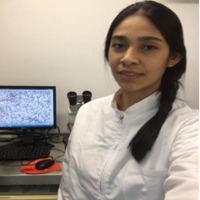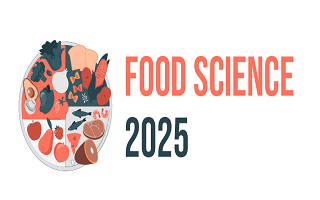2nd International Conference on
Food Science and Technology
September 19-20, 2025 | Online
Food Science 2025

National University of Colombia, Colombia
Abstract:
Escherichia coli O157 is a highly virulent foodborne pathogen associated with severe diseases such as hemorrhagic colitis and hemolytic uremic syndrome, making its detection in foods such as ground beef essential. Traditional microbiological methods, although reliable, are slow and can be affected by native microbiota, complicating accurate identification. To address these limitations, molecular techniques such as PCR and qPCR have been developed, offering faster and more specific alternatives. In this study, classical microbiological methods were compared with molecular techniques (qPCR-SYBR Green) to detect E. coli O157 in artificially contaminated ground beef. Four qPCR protocols targeting the rfbE, stx1 and stx2 genes were validated, evaluating sensitivity, specificity and robustness. The qPCR protocols achieved efficiencies between 77% and 97%, with high linearity (R² = 0.99) and low detection limits for each primer sequence (3.1667 x 10-2 ng μL-1 for rfbE (primers rfbE and O157); 1.7228 x 10-3 ng μL-1 for stx1 and 3.5185 x 10-3 ng μL-1 for stx2). Furthermore, they demonstrated 100% inclusivity and exclusivity, detecting up to 4 CFU/mL within a few hours, whereas traditional methods required 24– 48 hours. The molecular analysis was less susceptible to interference from microbiota, improving detection accuracy. Although classical techniques remain the standard for confirmation, qPCR offers significant advantages in speed, sensitivity and specificity, making it a key tool for routine monitoring and food safety. The integration of both methodologies ensures a more comprehensive and reliable approach to pathogen identification.
Biography:
Karent Carrero Contreras is a Biological Engineer with a Master's degree in Chemical Sciences from the National University of Colombia, obtained in 2021. Her postgraduate research focused on the detection of pathogens in food. She has experience in the design and implementation of quality programs for companies in the food sector. She has published works in molecular biology, food safety, and biopolymer production (PHA) from various substrates. Currently, she specializes in regenerative therapy and immunomodulation, working as a researcher in the biomedical field, where she contributes to the advancement of science through innovative and multidisciplinary approaches.
